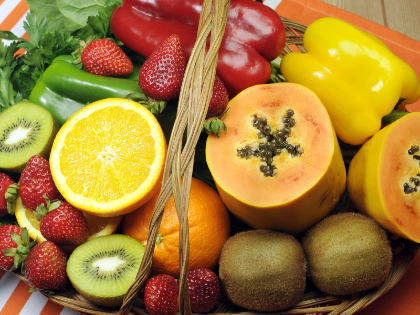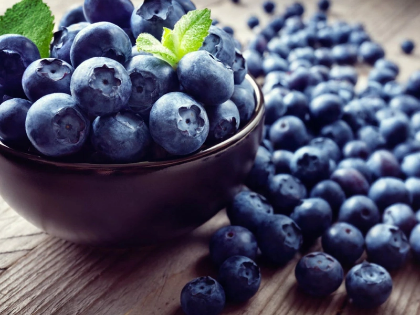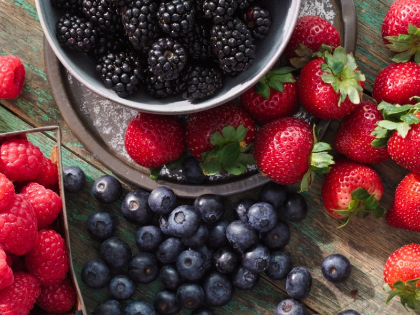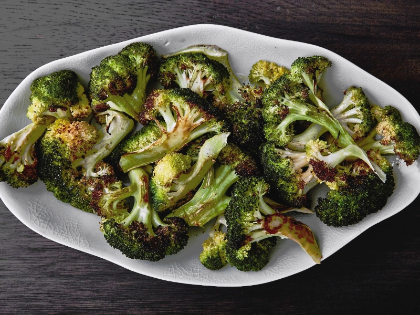The Synergistic Effects of Vitamin C and Other Antioxidants

Advertisement
 3. Harmonious with vitamin E Two potent antioxidants working together are vitamin C and vitamin E. Whereas vitamin E is fat-soluble and lives in cell membranes, vitamin C is water-soluble and mostly found in the watery environs of the body. Vitamin C can renew vitamin E when it neutralises free radicals, therefore enabling it to keep its protective action in stopping lipid peroxidation. This cooperation increases the body's general antioxidant capacity, so offering more defence against oxidative stress.
4. The Relationship with Flavonoids Found in fruits, vegetables, and beverages including tea and red wine, flavonoids are a varied collection of phytonutrients. They might boost the effects of vitamin C and have antioxidant qualities. Studies point to flavonoids helping to stabilise vitamin C, therefore preventing its breakdown and improving its bioavailability. This synergy could strengthen the antioxidant defence system, therefore providing more solid defence against inflammation and oxidative stress.
3. Harmonious with vitamin E Two potent antioxidants working together are vitamin C and vitamin E. Whereas vitamin E is fat-soluble and lives in cell membranes, vitamin C is water-soluble and mostly found in the watery environs of the body. Vitamin C can renew vitamin E when it neutralises free radicals, therefore enabling it to keep its protective action in stopping lipid peroxidation. This cooperation increases the body's general antioxidant capacity, so offering more defence against oxidative stress.
4. The Relationship with Flavonoids Found in fruits, vegetables, and beverages including tea and red wine, flavonoids are a varied collection of phytonutrients. They might boost the effects of vitamin C and have antioxidant qualities. Studies point to flavonoids helping to stabilise vitamin C, therefore preventing its breakdown and improving its bioavailability. This synergy could strengthen the antioxidant defence system, therefore providing more solid defence against inflammation and oxidative stress.
 5.Glutathione and vitamin C Glutathione's vital function in detoxification and cellular protection makes it sometimes referred to as the body's master antioxidant. Maintaining ideal glutathione levels depends in great part on vitamin C. It can assist oxidised glutathione be rebuilt into its active form, therefore strengthening the body's capacity to fight oxidative stress. This interaction emphasises the need of vitamin C in maintaining general antioxidant capacity and cellular integrity.
6. Combining Antioxidants: Their Benefits Combining vitamin C with other antioxidants might improve health even further. Studies of diets high in a range of antioxidants, for example, have found that they help lower inflammation, strengthen the immune system, and enhance cardiovascular health. Eating meals with a combination of antioxidants can help people to have a synergistic impact that increases the protective qualities against oxidative damage.
7. Provider of Other Antioxidants including Vitamin C Maximising the synergistic effects of foods high in vitamin C and other antioxidants requires including many different foods into your diet. Particularly good sources of vitamin C are citrus fruits, strawberries, bell peppers, and broccoli. Foods high in vitamin E meanwhile are green leafy vegetables, almonds, and seeds. Berries, onions, dark chocolate all have flavonoids. Including a rainbow of fruits and vegetables in your meals can help to provide a varied intake of antioxidants.
5.Glutathione and vitamin C Glutathione's vital function in detoxification and cellular protection makes it sometimes referred to as the body's master antioxidant. Maintaining ideal glutathione levels depends in great part on vitamin C. It can assist oxidised glutathione be rebuilt into its active form, therefore strengthening the body's capacity to fight oxidative stress. This interaction emphasises the need of vitamin C in maintaining general antioxidant capacity and cellular integrity.
6. Combining Antioxidants: Their Benefits Combining vitamin C with other antioxidants might improve health even further. Studies of diets high in a range of antioxidants, for example, have found that they help lower inflammation, strengthen the immune system, and enhance cardiovascular health. Eating meals with a combination of antioxidants can help people to have a synergistic impact that increases the protective qualities against oxidative damage.
7. Provider of Other Antioxidants including Vitamin C Maximising the synergistic effects of foods high in vitamin C and other antioxidants requires including many different foods into your diet. Particularly good sources of vitamin C are citrus fruits, strawberries, bell peppers, and broccoli. Foods high in vitamin E meanwhile are green leafy vegetables, almonds, and seeds. Berries, onions, dark chocolate all have flavonoids. Including a rainbow of fruits and vegetables in your meals can help to provide a varied intake of antioxidants.
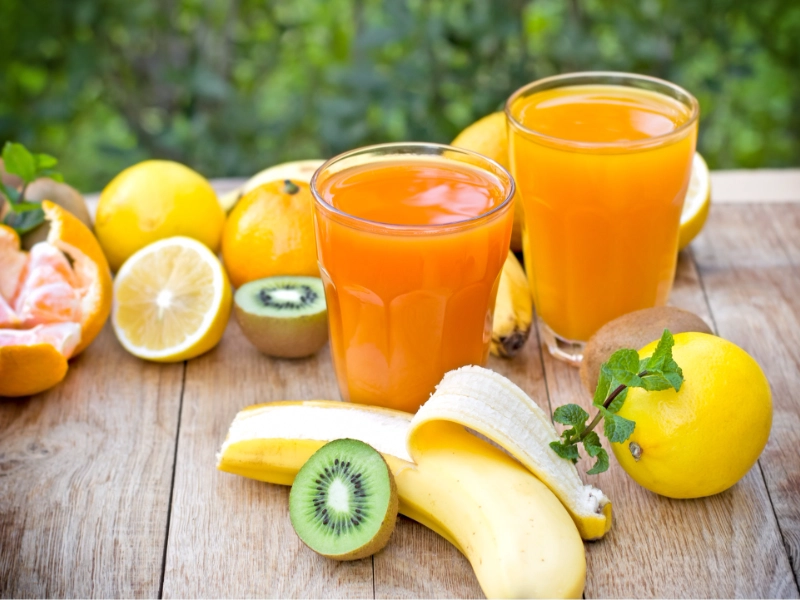 8. The Effect on Seniors A major component of the ageing process, oxidative stress helps age-related illnesses to develop. Vitamin C and other antioxidants taken in concert can help stop this process. These nutrients could boost cognitive function, hasten skin health, and help to reduce oxidative damage, so promoting better ageing. One can be proactive in preserving vitality as one ages by stressing a diet high in antioxidants.
9.Antioxidants and Prevention of Chronic Illness Studies showing a diet heavy in antioxidants—particularly vitamin C—may reduce the incidence of chronic diseases including heart disease, diabetes, and several malignancies. It is imperative to eat a range of foods high in antioxidants since the combined impacts of these nutrients can improve their protective capabilities. This eating plan not only supports general health but also is quite important for the avoidance of diseases.
10. Synopsis of Synergistic Action The combined action of vitamin C and other antioxidants emphasises the need of a balanced diet high in several nutrients. Working together, these antioxidants improve one another's protective qualities, therefore providing more defence against oxidative stress and related health hazards. Including a range of foods high in antioxidants in your daily diet will help to enhance your health results and lower your risk of chronic conditions. Accepting the power of these nutrients can be a basic but efficient approach to improve general well-being and support a better way of life.
8. The Effect on Seniors A major component of the ageing process, oxidative stress helps age-related illnesses to develop. Vitamin C and other antioxidants taken in concert can help stop this process. These nutrients could boost cognitive function, hasten skin health, and help to reduce oxidative damage, so promoting better ageing. One can be proactive in preserving vitality as one ages by stressing a diet high in antioxidants.
9.Antioxidants and Prevention of Chronic Illness Studies showing a diet heavy in antioxidants—particularly vitamin C—may reduce the incidence of chronic diseases including heart disease, diabetes, and several malignancies. It is imperative to eat a range of foods high in antioxidants since the combined impacts of these nutrients can improve their protective capabilities. This eating plan not only supports general health but also is quite important for the avoidance of diseases.
10. Synopsis of Synergistic Action The combined action of vitamin C and other antioxidants emphasises the need of a balanced diet high in several nutrients. Working together, these antioxidants improve one another's protective qualities, therefore providing more defence against oxidative stress and related health hazards. Including a range of foods high in antioxidants in your daily diet will help to enhance your health results and lower your risk of chronic conditions. Accepting the power of these nutrients can be a basic but efficient approach to improve general well-being and support a better way of life.
Advertisement



